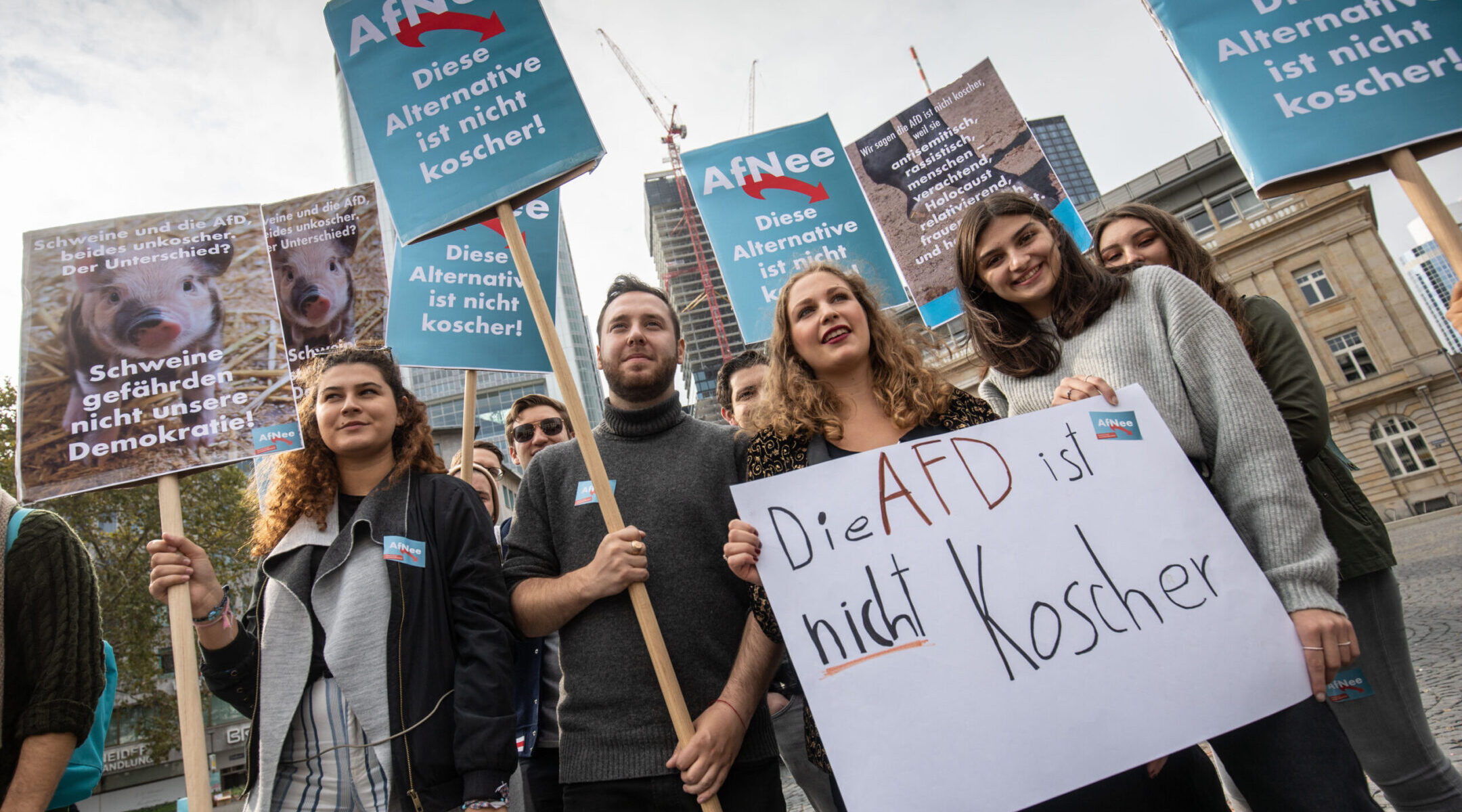ARTICLE AD BOX
‘They are gathering ammunition, drawing up plans and waiting for the opportune moment. The danger is massive, growing, and imminent,’ says Naomi Kahn, director of Regavim’s International Division.
By John Hasten, JNS
Standing on the roof of her apartment building on the eastern tip of the central Israeli town of Rosh HaAyin, just meters away from the security barrier, Moriah Tzafar shares a grave concern.
“We see [Palestinian Authority] cars driving around, getting closer to us. What are they doing here? The area is a closed military firing zone [Zone 203]. We see them carrying out tours of the fence line. There are cars, people, illegal housing, and they’re getting closer. We report this every day to the authorities,” she says.
“It reminds us of the [female] IDF spotters overlooking the Gaza border. We didn’t listen to the spotters before Oct. 7, 2023, how is it possible the same concept still exists, that we are [still] relying on a fence?”
Tzafar spoke during a press tour organized by the Regavim Movement this past Monday aimed at exposing security threats to Israelis living in the center of the country.
The P.A. has constructed nearly 17,000 illegal structures within a kilometer of Israel’s security fence, which stretches roughly along the 1949 Armistice Line from the Gilboa area in the north down to Ein Gedi near the Dead Sea.
According to Naomi Kahn, director of Regavim’s International Division, the security threat in the center of the country is pressing.
“The level of danger to Israelis living near the seamline is not a possibility, it is a reality. There have already been incursions and terrorist attacks in seamline communities and deep into Israel,” she told JNS.
“The level of danger is higher than we’d like to admit, as massive quantities of arms are coming in through Judea and Samaria [via Jordan] because the Gaza border is secured and northern border is in the process of being secured, so the Iranian proxies and anti-Israel forces are concentrating their efforts on the much longer and less protected seamline area,” she said.
“They are gathering ammunition, drawing up plans and waiting for the opportune moment. The danger is massive, growing, and imminent.”
Kahn explained that during the Oslo Accords the seam line was created to prevent an Oct. 7-style scenario by forming a buffer zone and increasing Israel’s reaction time against a potential hostile invasion.
However, despite the fact that it is illegal under international law to enter, build, plant, or make any physical changes within 500 meters of the security barrier, the P.A. constantly does so, she said.
In 2002, during the height of the Second Intifada, the Israeli government began construction of the security fence along the seam line in an attempt to prevent terrorist incursions into the center of the country.
However, according to Regavim, the state has ignored the P.A. attempts to annex Area C of Judea and Samaria, and no steps have been taken push back against the illegal encroachment on state lands, which includes the construction of 90,000 illegal structures in areas under full Israeli jurisdiction.
At the same time, the security fence has be sabotaged repeatedly, to the point that many kilometers of the barrier have been completely demolished.
Rani Gavriel, the head of Rosh HaAyin’s auxiliary neighborhood patrol unit, working with local police to try and keep the community safe, told JNS that, “6,000 Arabs pour into Israel illegally on a daily basis.”
He described a constant battle against theft, sexual assault and terrorist attacks by Arabs who penetrate the seam line.
“The Arab’s best weapon is the olive tree,” he said. “Even if the olives aren’t ready to be picked, they are in the fields using the trees as cover to carry out surveillance. These people are just like Hamas or Hezbollah. They openly say that Rosh HaAyin is theirs.”
Gavriel said he has been warning of the threat for years, meeting with the Knesset’s Foreign Affairs and Defense Committee and Internal Security Committee back in 2021, but nobody is listening. “Oct. 7 wasn’t an isolated incident,” he warned. “We’re getting ready for the next one.”
Accompanied by a military escort, the group was taken into the nearby Firing Zone 203, located just to the east in Samaria.
Kahn explained that Israel set up many firing zones on state land following Israel’s withdrawal from Sinai under the 1979 peace agreement with Egypt.
Despite the fact that these training areas are closed military zones, Kahn said the P.A. encourages Arabs to move into them in order to create the illusion that ancient Arab villages existed there.
Firing Zone 203 is home to massive illegal construction, with beautiful villas and sports fields. E.M. (who asked that his name be withheld) the land protection officer for the Shomron Regional Council, who led the tour of the area, pointed out that we were traveling on a brand-new paved east/west route extending closer and closer to Rosh HaAyin.
“When we see the illegal construction we report it to the Civil Administration,” he told JNS.
“They are working, but not doing enough. It’s time to wake up, destroy the illegal construction and take a stand against the P.A., which is being funded by foreign entities.”
In the firing zone, Barak Werker, CEO of the Green Now organization, focused on the environmental damage to the area caused by the P.A., which he said affects P.A. Arabs and Israelis alike.
“When it comes to environmental issues, there are no borders. The seamline doesn’t exist,” he said.
Back in Rosh HaAyin, Moriah Tzafar had told the group her family suffers daily due to illegal burning of waste carried out by P.A. Arabs. “We are forced to sleep with the windows closed every night” she explained.
Werker stressed how the P.A. acts like a third world country, causing air pollution through illegal burns, especially of electronic waste, as well as water pollution by dumping raw sewage into streams.
In his view, both Israel and the P.A. need to put politics aside, and one entity needs to be created to handle all environmental issues.
Heading a bit further to the east in Samaria, the group was taken to the Avichai cattle farm, established on top of a hill on state land by Eitan Melet and his family more than a year ago.
With clear views of Rosh HaAyin and Tel Aviv to the west, Melet told JNS, “We are here protecting the seamline communities through a constant Jewish presence.”
The Arab terrorists who carried out the 2022 terrorist attack in the city of Elad in which four Israelis were murdered, had set out from the area in which the farm is now located, he said, implying that the attack could have been prevented had there been an Israeli presence in the area at the time.
“Our purpose is to safeguard the land of Israel,” said Melet.
When asked what Israel could do to increase security in the post-Oct. 7 reality, Kahn said, “The government must treat our enemies as enemies. It must stop living under the false concept of enabling Arabs to come through and providing the Arabs with economic incentives not to attack us. We saw along the Gaza border that that is a completely false assumption, but that’s still an assumption that forms the basis of Israel’s policy. That has to be changed.”
Israel, she continued, must “take the P.A. at its word—it intends to create a Palestinian state in all of Judea and Samaria, and we have to look carefully at what the P.A. has done up till now with its security forces. A P.A. state will not be one that intends to live in peaceful coexistence. Dozens of Israelis have been murdered by the official P.A. police forces while hundreds have been wounded. Their security apparatus is aimed at us and is waiting simply for the opportune moment to unleash another Oct. 7 upon us,” she added.
According to Kahn, “Regavim is collecting the information and analyzing it and making sure our decision makers, most importantly our political leadership, understands what’s happening on the ground.”
The organization also initiates lawsuits “that force the government of Israel to take notice, respond and explain its failure to act. And through those court cases we expose the underlying misconceptions and dispel them. We propose alternatives to the failed paradigms that we see are still in operation and we try to encourage our politicians to act in our national interests by first and foremost treating our enemies like enemies,” she said.

 2 months ago
129
2 months ago
129









 English (US) ·
English (US) ·